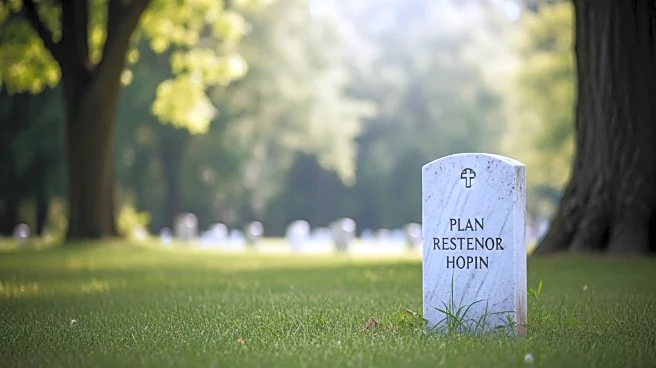What is the story about?
What's Happening?
The Department of Veterans Affairs has announced that national cemeteries will not be maintained during the current government shutdown. This decision comes after the Senate adjourned without passing a funding resolution, leading to the shutdown. The shutdown affects several services provided by the VA, including veteran career counseling, the GI Bill Hotline, and the VA regional benefits office. However, veteran health care and benefits processing will continue, and burials at national cemeteries will proceed. The shutdown follows a similar event in 2018-2019, which lasted 35 days. Political leaders from both parties have struggled to reach an agreement on a temporary funding bill, with Democrats seeking to extend health care tax credits and rollback Medicaid cuts, while Republicans have not agreed to the proposal.
Why It's Important?
The shutdown's impact on national cemeteries highlights the broader consequences of political gridlock in Washington. Veterans and their families may face disruptions in services, adding stress to those who rely on VA support. The shutdown also underscores the ongoing partisan divide, with Democrats and Republicans unable to agree on a funding resolution. This situation could have significant implications for public policy, particularly in areas related to health care and veteran services. The shutdown may also affect public perception of government efficiency and accountability, potentially influencing future elections and policy decisions.
What's Next?
The Senate is expected to reconvene after Yom Kippur, but the resolution of the shutdown remains uncertain. Betting odds suggest the shutdown could last for weeks, indicating a prolonged period of uncertainty for affected services and stakeholders. Political leaders will likely continue negotiations, but the path to a resolution appears challenging. Stakeholders, including veterans' groups and political leaders, may increase pressure on Congress to find a solution, emphasizing the need for bipartisan cooperation to address the funding impasse.















